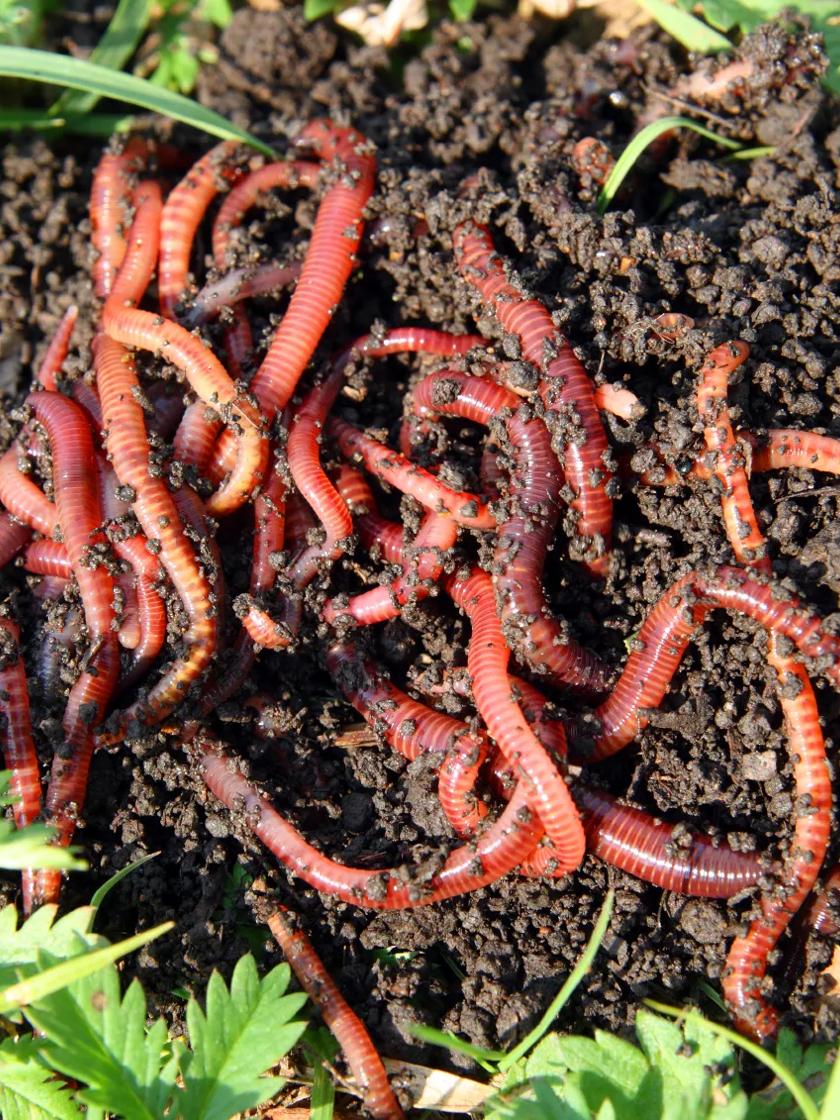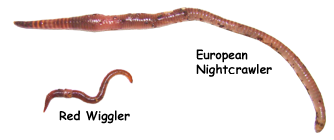Red Wiggler Worms - Efficient Decomposers for Your Garden Compost Bin
Red Wiggler Worms - Efficient Decomposers for Your Garden Compost Bin
Blog Article
Red Wiggler Worms Demystified: Opening the Secrets of Vermiculture for Greener Living and Nutrient-Rich Dirt
In the world of sustainable methods for improving dirt top quality and promoting eco-conscious living, red wiggler worms play a crucial yet commonly overlooked duty. These humble creatures possess the impressive capacity to change natural waste into nutrient-rich castings that serve as a powerful natural fertilizer. By diving into the world of vermiculture, one can uncover a huge selection of advantages that prolong much beyond standard composting methods. Understanding the intricacies of taking care of these worms, enhancing their environment, and utilizing their castings can bring about a greener lifestyle and much healthier dirt for plants to prosper.
The Role of Red Wiggler Worms
Red Wiggler worms play a crucial role in composting systems by effectively damaging down organic matter into nutrient-rich spreadings. These ravenous eaters consume a range of natural materials, such as kitchen area scraps, yard waste, and paper items. As they feed, the worms' digestive processes break down the natural issue right into a penalty, dark, and nutrient-dense product called worm castings or vermicompost.
The castings created by Red Wiggler worms are highly valuable for soil health and plant growth. They are rich in essential nutrients like potassium, phosphorus, and nitrogen, which are crucial for sustaining healthy and balanced plant growth. Additionally, worm castings contain useful germs and enzymes that aid boost dirt framework, rise water retention, and boost nutrient uptake by plants.
Advantages of Vermicomposting

It boosts soil framework, improves soil aeration, and raises soil dampness retention. Vermicompost also enhances the soil with crucial nutrients like nitrogen, potassium, and phosphorus, advertising plant development and general dirt fertility.
Additionally, vermicomposting supports lasting horticulture techniques by giving a chemical-free and natural option to artificial plant foods. Red Wiggler Worms. This eco-friendly technique not just improves the dirt but also helps decrease dependence on dangerous chemicals, advertising a greener and more sustainable way of gardening
Setting Up a Worm Bin
When establishing a worm container for vermicomposting, proper setup is critical to guarantee the success of the composting process. The initial step in establishing a worm container is selecting an ideal container. This can be a plastic bin or wooden box that offers enough space for the worms to walk around and has correct water drainage holes to avoid waterlogging. Next, a bed linen product such as shredded newspaper, cardboard, or coconut coir need to be included in the container. This bedding gives a comfy setting for the worms and assists keep moisture degrees.
After adding the bed linens, introduce the red wiggler worms to the bin. It is suggested to begin with a handful of worms and slowly boost as they increase. The worms must then be given with food scraps such as fruit and veggie peels, coffee grounds, and eggshells. It is necessary to avoid adding meat, milk, oily, or salty foods to avoid bring in insects and creating undesirable odors.
On our website a regular basis keep an eye on the moisture degrees and temperature level in the worm bin to make certain ideal problems for the worms. With proper arrangement and maintenance, the worm container will efficiently transform organic waste into nutrient-rich garden compost for your plants and garden.
Gathering Worm Spreadings
To successfully accumulate nutrient-rich worm castings from your vermicomposting system, a systematic harvesting technique is crucial. When it comes time to harvest the worm spreadings, there are a few crucial actions to comply with to ensure a successful procedure.

Troubleshooting Common Issues
Identifying and attending to typical difficulties that might develop during the vermicomposting process is essential for maintaining a healthy and balanced and effective worm container. One typical problem that vermicomposters encounter is overfeeding. Including excess food scraps that site can bring about a buildup of moisture and level of acidity in the worm container, potentially harming the worms. To avoid this, feed the worms in small amounts, making sure that the food scraps are adequately broken down prior to adding more. An additional problem is unpleasant smells rising from the worm bin. Foul smells show anaerobic conditions, generally triggered by overwatering or inadequate air flow. To correct this, change the moisture degrees by adding completely dry bedding products like shredded newspaper or cardboard and increase oygenation by turning the bedding routinely.
Additionally, if the worm populace is declining or the worms appear harmful, maybe as a result of ecological stress factors such as extreme temperature levels or pH levels. Checking these factors and making required changes is necessary for the health of the worms. By troubleshooting these typical concerns promptly, vermicomposters can guarantee a smooth and successful vermicomposting process while maintaining a prospering worm populace.

Final Thought
In verdict, red wiggler worms play a crucial duty in vermiculture by damaging down organic issue site link right into nutrient-rich dirt. Setting up a worm container is vital for successful vermiculture, and collecting worm spreadings offers valuable garden compost for gardening.
As they feed, the worms' digestive procedures break down the natural matter right into a fine, dark, and nutrient-dense product recognized as worm castings or vermicompost.
The castings created by Red Wiggler worms are highly beneficial for dirt health and plant development. Including excess food scraps can lead to a build-up of moisture and level of acidity in the worm bin, possibly hurting the worms.In addition, if the worm population is decreasing or the worms appear harmful, it might be due to ecological stressors such as severe temperature levels or pH levels. Establishing up a worm container is crucial for successful vermiculture, and collecting worm castings offers useful compost for gardening.
Report this page